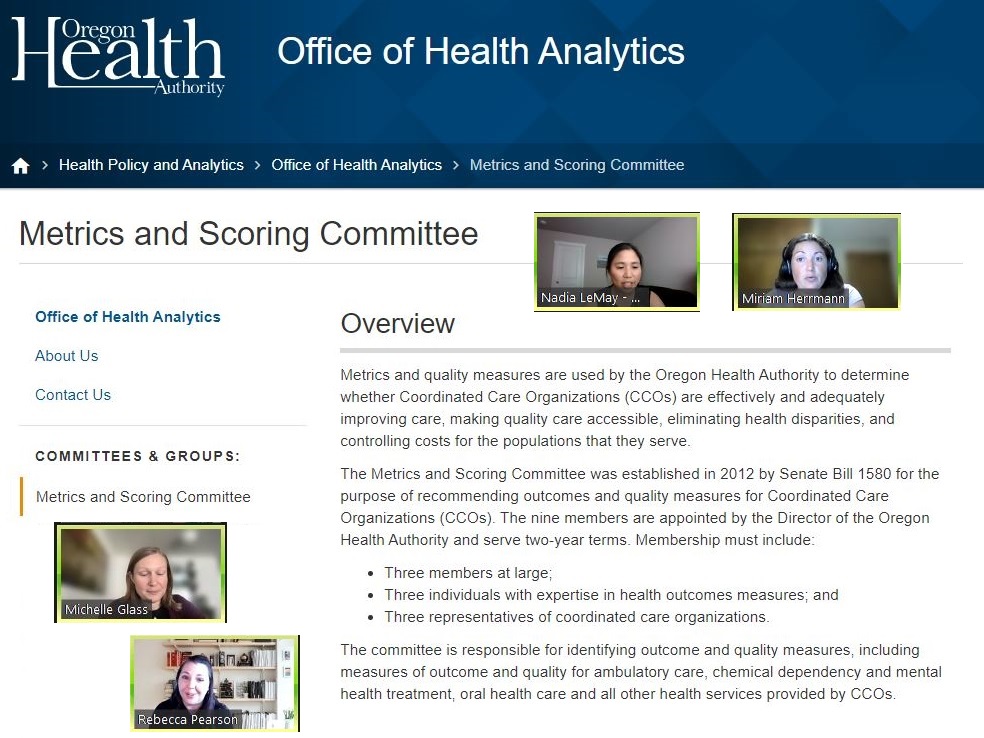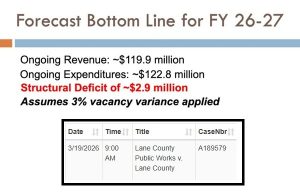Even health measures can reveal systemic bias
3 min read
OHA was asked to improve its cigarette smoking data, to better support different communities with culturally competent, racially sensitive and targeted resources, incentives, and messages.
Even the way we measure health can reflect systemic bias. The Oregon Health Authority took public comment last week, as it moves to retire a measure on cigarette smoking.
Rebecca Pearson: [00:00:13] I appreciate the opportunity to testify here today on the cigarette smoking incentive metric. My name’s Rebecca Pearson. I use she and they pronouns. I was recently elected Vice Chair Jackson County CAC for AllCare. I’ve been a CAC member since 2017.
I also work for the Rogue Action Center. We’re a community organization where we engage directly with underserved folks and our community members and our region, the LatinX folks, LGBTQ plus low-income folks, renters members of minority faith communities among them. We are also one of the organizations working directly to support fire survivors from last year’s Almeda and Obenchain fires here in Southern Oregon.
I’m concerned that retiring this tobacco metric will disproportionately impact those same communities that I work closely with, removing necessary cessation supports and incentives. We know people of color and low-income folks and LGBTQ+ folks have been targeted by tobacco companies and have higher rates of tobacco use in the general population.
Why would we retire this metric before stratifying it with REALD and other demographics? My understanding is that there’s a measurement retirement checklist. And the first item on that list is, ‘No additional opportunity for meaningful performance improvements.’ And until we look at that metric with REALD and SOGI data applied to it, I fail to see how we can say there’s no additional opportunity for meaningful performance improvement in this area. In fact, I fail to see how this metric has met a single item on that list.
Thank you for supporting
local citizen journalism
Additionally, with the passage of Measure 108 increasing the cost of cigarettes and tobacco products, coupled with the elimination of the cessation support, it feels like a punishment for those community members who are already financially stretched thin. One in three Oregonians with mean annual household income of less than $20,000 smokes. Um, for households making more than $50,000 a year, it’s one in 10. So I believe it’s clear there’s more work to be done here.
And I urge you to leave this metric in place and apply SOGI and REALD data so we can accurately measure smoking cessation success and better support different communities with culturally competent, racially sensitive, and targeted resources, incentives, and messages. Thank you for your time and the opportunity to testify on behalf of my community and myself.
John Q: [00:02:24] Michelle Glass, from the Rogue Action Center in Talent.
Michelle Glass: [00:02:29] We’re actually hearing through our community engagement from communities of color, specifically in Southern Oregon, that they are very concerned about this issue and that there is a need for more culturally and linguistically appropriate tobacco education and cessation resources along with an increased focus on addressing the root causes of chronic stress that lead to tobacco use among these populations. And those are systemic racism, homophobia, and transphobia, economic inequality, and ableism.
Instead of retiring this metric, we urge the committee to stratify the metric using REALD and SOGI data to focus on targeted resources for those harmed the most by tobacco industry’s predatory practices aimed at communities impacted by systemic oppression.




